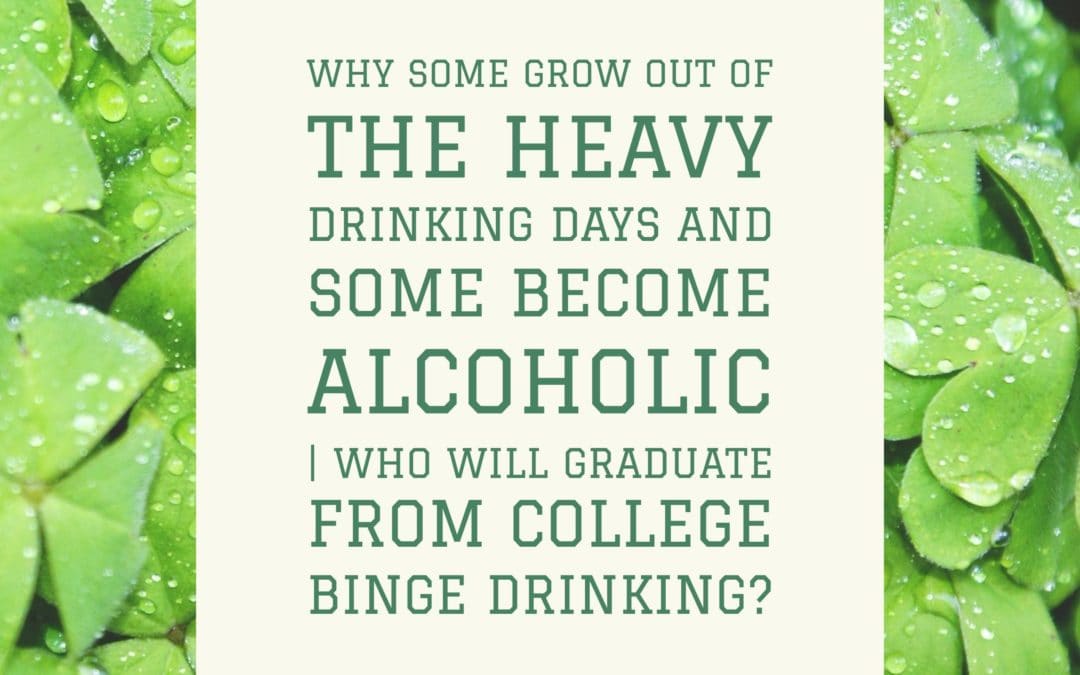Podcast: Play in new window | Download
Subscribe to the Recovery Elevator Podcast Apple Podcasts | RSS | More
In this episode, Rachael, with 2.5 years of sobriety, shares how she did it.
I got the idea for today’s topic from an article I read by Sarah A Benton called: Why some phase-out of college binge drinking and others are alcoholic. It piggybacks perfectly off last week’s episode with Johnny Manziel. Manziel appears not to be growing out of this phase and it’s becoming apparent he has a real problem with alcohol.
Why do some people simply not “grow out” of this phase? Here are some reasons the article states:
• The Surgeon General’s 2007 “Call to Action” report indicates that genetics account for 50% of the risk of developing alcoholism, therefore, family history is one of the strongest determinations of who may be alcoholic. In addition, the drinking culture of the individual’s family and the role that alcohol plays.
• The age that he or she began drinking is another key factor. Specifically, research by the NIAAA indicates that teens who begin drinking before the age of 15 have a 40% greater chance of becoming alcoholic with or without a family history of alcoholism.
• Certain work or graduate school environments tend to incorporate alcohol into their social events such as going out after work or class for drinks or drinking while networking (ie, law, business). These cultures may normalize heavy drinking and also breed a “work hard, play hard” mentality that enables alcoholic drinking patterns.
• The drinking patterns of the group of friends that he or she lives with or socializes with. Heavy drinkers tend to migrate towards spending time with others who drink like they do and this often allows them to justify and minimize their excessive drinking.
• The individual’s predispositions toward mental illness (such as depression, bipolar disorder, anxiety) or a trauma history (PTSD) may lead he or she to self-medicate with alcohol.
• Impulse-control issues that include thrill-seeking behaviors and a need for immediate gratification.
• Certain drinking patterns are “red flags” for alcoholism including blacking out (ie, memory loss when drinking), inability to have just 1-2 drinks, obsessing about alcohol, rotating their social life around alcohol, drinking daily or frequently, behaving in shameful ways while drunk, always needing to drink excessively before going to a party (ie, “pre-partying”) and surrounding themselves with peers who drink heavily.
Support the podcast and make your Amazon purchases through the Recovery Elevator affiliate link. 1/2 of all revenues will go to recovery non-profits.



